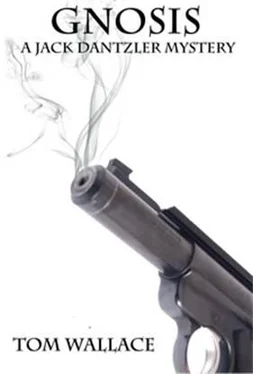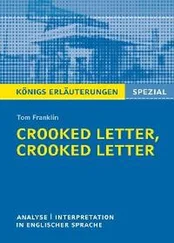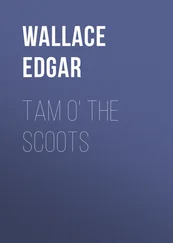“Yeah, she was. According to the murder book, she was questioned by Dale Larraby. And we all know what kind of cop he was.”
Larraby, recently retired, had a reputation for being lazy, boorish, and inefficient. Someone once said Larraby couldn’t find a Jew in Tel Aviv, much less a murderer. He and Dantzler despised each other, and had clashed on numerous occasions after Larraby had been assigned to the Homicide squad. No one in Homicide wept when Larraby turned in his gold shield.
“Tell me, Jack. Have you spoken to Angie Iler?”
“I have.”
“And did her account of what she remembered about that night differ greatly from what Larraby wrote in his report?”
“That’s not the issue. What troubles me most is what Larraby didn’t put in the report.”
“What did he omit that you feel was important?”
“If you’ll recall, Greg said he was in the barn for maybe a minute or two before he returned to the car. Now, that differs from what Angie told me. According to her, she was in the car alone for at least ten minutes before Greg came back. If Angie’s account is accurate, what was Greg doing in that barn those extra eight or nine minutes? And if she told this to Larraby, why didn’t he put it in his report? Why didn’t he tell you and Dan about it?”
Charlie frowned and leaned forward. “Because Dale Larraby was a lousy cop from day one, that’s why. He should’ve told us, and, yes, maybe Dan and I made a misstep by not questioning Angie. I suppose we trusted Larraby’s judgment more than we should have. But, hell, you just take it for granted a professional law enforcement officer has enough common sense to get important information to the lead detectives working a homicide case.”
“Larraby was an idiot, Charlie. He shouldn’t have been trusted to write a parking ticket.”
Charlie stood. “Want a beer? I have Bud Light and Anchor Steam. Take your pick.”
“No, thanks. I’ll pass.”
“Suit yourself.” Charlie left the room for no more than a minute before returning with a bottle of Anchor Steam. “Tell me, Jack, do you believe the Iler girl’s account of that night?”
“I don’t know. Sitting in the car alone, after having just seen two dead bodies, I can see how it might affect your perception of time. Two minutes could easily seem like ten. So I think it’s possible she’s wrong. But one thing I can tell you-she’s not lying. And that’s more than I can say for Greg Spurlock.”
“Yeah, Milt told me you found some ‘discrepancies’ in Spurlock’s story.” Charlie took a long pull from the bottle and set it on a coaster. “Okay, he’s a liar. But is he a killer?”
“No. The person who killed those two boys also killed Colt Rogers. Spurlock couldn’t have done it. I had Eric check Spurlock’s whereabouts at the time Rogers was murdered. He was performing surgery at Central Baptist Hospital.”
“Which puts your ass firmly planted back on square one.” Charlie finished off the beer. “Where do you go from here?”
“Talk to Greg Spurlock again. Try to find out why he’s lying.”
“That’s a start. Anything else?”
“Go back to the prison and talk with Eli. If he really wants to prove his innocence-if he is innocent-he has to give me more than what he’s given me so far.”
“When are you going to see him?”
“I’m leaving at nine this morning.”
“Want some company?”
“I don’t know if that’s a good idea, Charlie. He might not be too thrilled to see one of the detectives who put him away for life.”
“Well, I’m going, so thrilled or not, Eli will just have to deal with it.”
Today had been a good one for Eli Whitehouse. Better than good, really, considering the violence taking place inside his body. What had once been a healthy temple was now a battleground for those traitorous cancer cells gnawing at him like starving rodents, devouring the remaining healthy tissue inch by inch. But that wasn’t the case on this particular day. Today, the holy Sabbath, the two hostile factions rested, just as God had done after creating the world and all that was in it. As a result of this temporary truce, the excruciating pain that kept him on the edge of madness had blessedly taken a few hours off, allowing him to enjoy the best day he’d had in weeks. This was a rare moment, and he was thankful for it.
Eli felt strong enough to get out of bed without assistance and sit in a chair next to the window. This was the first time in weeks he had been able to perform such a simple task, and he was delighted that he could pull it off. No buzzing a nurse for help, thank goodness. No need to seek assistance from an orderly. Today, he was his own man. Pain and the certainty of death were terrible burdens to shoulder, but what he detested in equal measure was the loss of independence that went hand in hand with a terminal and debilitating illness like cancer. He had always been strong and independent; now someone had to clean him after he used the toilet. On certain days, he had to be fed like a baby. He no longer controlled the simplest of functions.
He was a prisoner behind bars and a prisoner to his illness.
Sitting in the chair, gazing out the window into the bright sunlight, he thought about his children. How much he loved them and missed them. How different they are, especially the two boys, neither of whom he had seen in years. Isaac had stopped visiting more than fifteen years ago; Thomas had never set foot inside the prison. He had often marveled at those differences, Isaac with his desperate need for approval, Thomas with his casual lack of concern toward virtually everything and everyone. How could two children born of the same parents be so dissimilar? Esau and Jacob had nothing on his two boys.
And there was Rachel, his lovely flower, the loyal one. His heart burst with joy every time he thought of his precious daughter. She had been steadfast in her belief that he was innocent, never wavering, never questioning or condemning. Her regular visits to the prison kept him going, providing him with the strength to survive today and the courage to face tomorrow. Were it not for Rachel, he would have withered and died long ago.
She had been like Saint Peter, the rock, the one who held the family together and kept him sane.
Rachel was also his primary lifeline to the outside world, particularly in regards to family affairs. Through her he kept up with his two absent sons, and although he was fully aware that her reports were far from truthful, he drank in her words like expensive wine. Not once did he challenge anything she said to him about the boys, even though he knew much of her account was pure fiction.
Isaac is an evangelist like you, Father, she told him. He has his own church, a nice one on Southland Drive. He has many members in his congregation-more than two hundred-and they love and respect him. He is happily married to a lovely woman named Rebecca-yes, just like Isaac in the Bible, what a coincidence!-and they have two sons, David and Matthew, and a daughter, Mary. You should be proud of him, Father.
Eli was proud of Isaac, but more than anything he was surprised by him, by the path he chose to take in life. Never in a million years would he have guessed that his eldest son would become a preacher. Not Isaac, who, as a young man, would go to any lengths to put distance between him and the church. He wanted to get as far away as fast as possible. Isaac had no time for sermons, or the Word of God, or Holy Scripture handed down like thunder by his old man. He got more than enough of that nonsense at home.
However, as Eli reflected upon it now, he wondered if he should have been surprised by Isaac’s decision to follow him into the ministry. Perhaps it wasn’t such an outlandish or extreme decision. After all, preachers are nothing more than performers, actors upon a stage, playing to an audience. And what are all performers desperately seeking? Love. They all want to be loved.
Читать дальше











